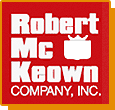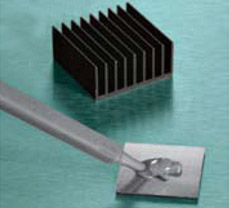Series 300-700 COHRlastic generalpurpose molded sheet is available in thicknesses up to 1/2" and it withstands temperatures from –100 °F to +500 °F.
Series 9030 - 9070 COHRlastic is also general-purpose, but is produced in 36" wide continuous lengths for the most efficient utilization of material, minimizing waste. Standard thicknesses are 1/32", 1/16" and 1/8".Withstands temperatures from –100 °F to +500 °F. Please consult plant for availability of additional thicknesses and colors.
Series 9200 high-performance COHRlastic provides excellent tensile strength and superior tear resistance. It is tougher and more resilient than generalpurpose silicone. Standard thicknesses are 1/32", 1/16" and 1/8", and it withstands temperatures ranging from –100°F to +400 °F. A minimum thickness of .015" is available on a minimum quantity basis. Red color is standard for general-purpose goods. Black or gray can be provided on a minimum quantity basis.The 9200 series is standard in gray, but clear or red can be supplied on a minimum quantity basis. Contact plant for minimums.
Dielectric Strength Approx. |
N/A 500 V/mil |
Thermal Conductivity (Average) |
N/A 4.4 x 10-4 x (cal·cm/ºC·cm·s) 1.3 BTU i./h·ft2 ºF |
Specific Heat |
N/A 0.3 BTU/lb/ºF |
| Linear Thermal Expansion1 | N/A 1.5 x 10-4 |
Width/Sheet Size |
N/A 36 in |
Color |
N/A Red |
| Thickness2 | N/A 1/16 ±.005 in1/32 ±.005 in1/8 ±.010 in3/32 ±.010 in |
ZZ-R-765, Class 2a & 2b (Grade) |
N/A 40 |
AMS |
N/A 3301 |
Test Method Durometer |
N/A D2240 |
| Durometer (Shore A ±5)3 | N/A 40 |
Test Method Tensile Strength |
N/A D412 |
| Tensile Strength4 | N/A 900 psi |
Test Method Elongation |
N/A D412 |
| Elongation5 | N/A 500 % |
Test Method Tear Strength |
N/A D624 |
| Tear Strength6 | N/A 80 ppi |
Test Method Compression Set |
N/A D395 |
| Compression Set after 70 h at 320 ºF7 | N/A 15 % |
Durometer Change (Points, Shore A) after Dry Heat Aging for 70 h at 437 ºF |
N/A +5 |
Tensile Strength Change after Dry Heat Aging for 70 h at 437 ºF |
N/A –10 % |
Elongation Change after Dry Heat Aging for 70 h at 437 ºF |
N/A –20 % |
Durometer Change (Points, Shore A) after Immersion in ASTM Oil #1 (High Aniline Point) for 70 H at 302 ºF |
N/A –10 |
Tensile Strength Change after Immersion in ASTM Oil #1 (High Aniline Point) for 70 H at 302 ºF |
N/A –10 % |
Elongation Change after Immersion in ASTM Oil #1 (High Aniline Point) for 70 H at 302 ºF |
N/A –5 % |
Volume Change after Immersion in ASTM Oil #1 (High Aniline Point) for 70 H at 302 ºF |
N/A +5 % |
- 1 Room temperature to +350 ºF
- 2 Thickness 3/32 in - special order. Minimum quantities apply.
- 3 Die B Method B, ASTM D2000 + Fed. Spec. ZZ-R-765.
- 4 Die B Method B, ASTM D2000 + Fed. Spec. ZZ-R-765.
- 5 Die B Method B, ASTM D2000 + Fed. Spec. ZZ-R-765.
- 6 Die B Method B, ASTM D2000 + Fed. Spec. ZZ-R-765.
- 7 Die B Method B, ASTM D2000 + Fed. Spec. ZZ-R-765.
Robert McKeown offers a variety of adhesive and sealant products for a wide range of commercial and industrial applications. Our silicone epoxy adhesives and sealants, in particular, are ideal for applications such as:
FEATURES AND USES OF ELECTRONICS SEALANTS AND ADHESIVES
Providing ultimate reliability and longevity, our electronics adhesives and sealants can be used to form bonds to many different surfaces and substrates, including:
- Ceramics
- Metals
- Glass
- Filled plastics
These specialized solutions eliminate the need for mechanical fastening and clamping while allowing for optimal ease of processing. Reliable and efficient in temperatures ranging from -45 °C to 200 °C, our electronics adhesives and sealants provide excellent dielectric insulation.
Most silicone formulations are solventless, eliminating the need for special storage, ventilation, or handling. And because many of our electronics adhesives and solvents are reworkable, they offer great flexibility and allow for easier module repair.
Electronics adhesives and sealants are frequently used in: automotive, communications, industrial, and energy industries, as well as consumer devices.
Extremely versatile, these adhesives can be used for:
- Sealing lids and housing grooves
- Cushioning or stabilizing fragile components
- Affixing components such as capacitors and coils to circuit boards
- Adhering module lids and baseplates
- Gasketing
SILICONE ADHESIVES
One of the most popular types of electronics adhesives, silicone adhesives provide excellent flexibility and high heat resistance, making them ideal for electrical, automotive, aerospace, and construction industries. There are several varieties of silicone adhesives available, including:
- Two-component systems that require a curing agent
- One-component systems that cure through air moisture
- UV or EB radiation curing adhesives
- Pressure-sensitive versions that adhere to surfaces with little pressure
RTV sealants (room-temperature vulcanizing) begin to cure as soon as they’re exposed to moisture in the air, so they must be used quickly. Pressure-sensitive sealants offer a permanent tackiness. UV- or radiation-cured sealants, on the other hand, require UV light to cure, while thermoset silicone sealants require heat to cure. Although not as strong as other sealants or adhesives, electrical silicone sealants remain flexible even when fully dried or cured. Various types of silicone sealants serve as ideal solutions for high-heat applications like engine gaskets.
In electronics fabrication, silicone adhesive sealants are often used for fixing parts on circuit boards, LCD module assembly, general sealing, and component protection. Specific formulations differ depending on intended use and can be customized to allow for enhanced thermal conductivity, superior protection of metal electrodes, and faster cure times. These sealants are available in chemical-, heat-, mildew-, and oil-resistant formulations to meet a wide range of application needs.
Industrial silicone epoxy is used for:
- General-purpose fixture sealing of tubs
- Windows, ductwork
- Gaskets
- General-purpose bonding
- Sealing
THERMAL SEALANTS
High temperatures often present problems for conventional adhesive materials and can affect printed circuit boards and assemblies. At Robert McKeown, we offer the highest-level special adhesive grades of thermal sealants, which allow for enhanced thermal conductivity. Both low-viscosity liquids and non-slump formations are available in two-cure chemistries.
We also offer one-part moisture-cure grades, which use room-temperature processing to cut back on equipment needs. After cure, the materials form strong but flexible bonds, which protect from mechanical stress and vibration. Both one- and two-part heat-cure solutions accelerate processing and support high throughput production.
Heat resistant silicone adhesives are extremely versatile materials and dispense easily at room temperature, but can also cure quickly at any thickness level at temperatures as low as 90°C. Efficacy and functionality are improved when higher temperatures accelerate cure times.
CHEMICAL RESISTANT ADHESIVES
Chemical resistant silicone adhesives are commonly used in:
- Chemical processing plants
- Chemical piping and tanks
- Medical devices
These adhesives can reliably protect against a wide range of chemicals and harsh materials, including acid, alcohol, and fuel. Depending on specific application requirements, they can also provide resistance against solvents, bases, sterilization, and water.
EPOXY BASED ADHESIVES
Epoxy based adhesives are created by mixing a resin and a hardener. Curing is initiated when the resin is mixed with a certain catalyst. The covalent bonds resulting from this combination determine the rigidity and strength of the epoxy sealant.
Epoxy adhesives can reliably adhere to a variety of materials and are ideal for applications demanding chemical resistance, high strength, and low stress. Thermally conductive, microelectronic-grade, general-purpose, high-temperature and chemical resistant epoxy adhesives are available as both one- and two-part solutions. Epoxy adhesive and sealants allow for room temperature, thermal, or UV-curing capabilities.


